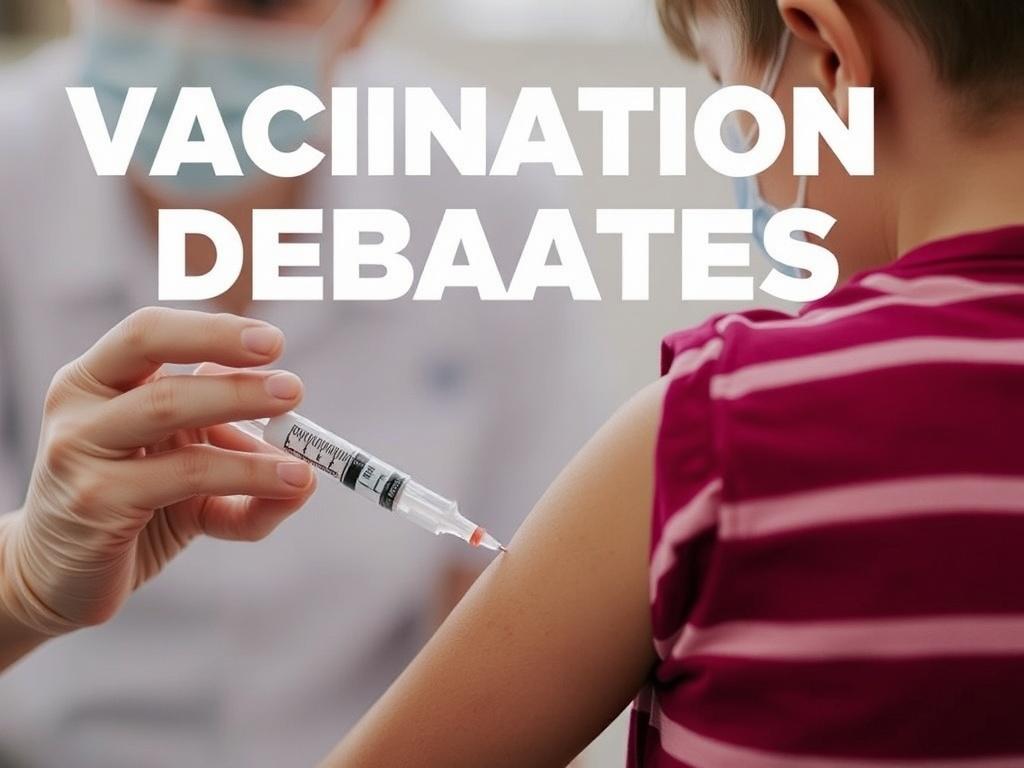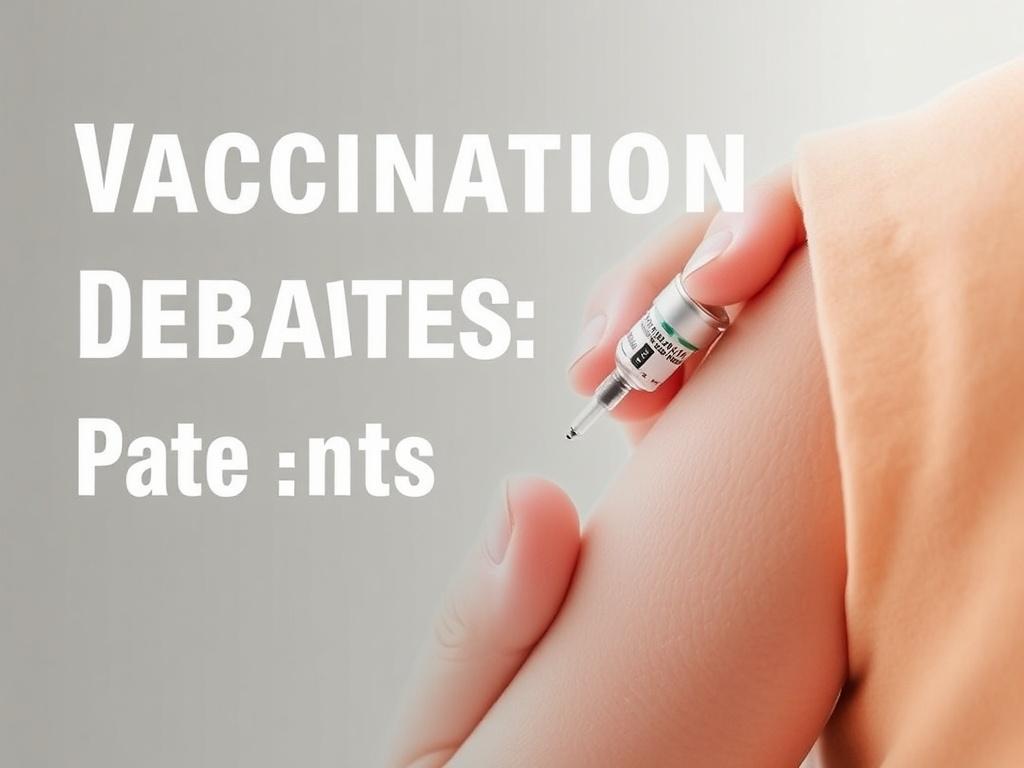SQLITE NOT INSTALLED
In today’s world, the topic of vaccination often ignites passionate debates among parents, healthcare professionals, and policymakers alike. With the abundance of information — and misinformation — circulating on the internet and social media platforms, it can be overwhelming for parents to make informed decisions about vaccinating their children. Understanding the facts, risks, and benefits surrounding vaccines is crucial. This article aims to guide parents through the vaccination debates, offering clear, evidence-based information so they can make confident choices about their children’s health.
Understanding Vaccinations: A Simple Overview
Before diving into the debates surrounding vaccines, it’s essential to understand what vaccinations actually are. Vaccines are biological preparations designed to provide immunity to specific infectious diseases. They typically contain weakened or inactivated parts of a particular organism (antigen) that triggers the body’s immune system to recognize it as a threat, destroy it, and “remember” it. This memory helps the immune system fight the disease more effectively if the person is exposed to it in the future.
Over the past century, vaccines have played a huge role in dramatically reducing the incidence of many serious diseases such as polio, measles, and whooping cough. Despite their success, vaccine hesitancy persists, largely fuelled by concerns regarding vaccine safety, myths, and misinformation.
How Vaccines Work: The Science Made Easy
The immune system is a complex defense mechanism that protects us from harmful microorganisms. Vaccination tricks this system into preparing defenses without causing illness. When the vaccine introduces the antigen, white blood cells identify it as foreign and produce antibodies to neutralize it. These antibodies remain in the system, providing long-term protection. Essentially, vaccines teach the body how to fight off diseases safely.
There are different types of vaccines, including:
- Live-attenuated vaccines: Use weakened forms of the virus or bacteria (e.g., measles, mumps, rubella).
- Inactivated vaccines: Contain killed pathogens that cannot cause disease (e.g., polio, hepatitis A).
- Subunit, recombinant, polysaccharide, and conjugate vaccines: Use specific pieces of the pathogen like protein or sugar molecules (e.g., HPV, pneumococcal vaccines).
- Toxoid vaccines: Contain toxins produced by the bacteria made harmless (e.g., tetanus, diphtheria).
The Importance of Vaccination for Children

One of the most critical decisions parents make concerns vaccinating their children. Childhood immunizations protect not only the vaccinated child but also contribute to broader public health by reducing disease spread.
Vaccines protect children from potentially life-threatening diseases including measles, diphtheria, pertussis (whooping cough), and polio. These illnesses can cause serious complications such as pneumonia, brain damage, paralysis, and even death. By vaccinating children according to recommended schedules, parents help safeguard their children and community from outbreaks.
Herd Immunity: Protecting the Vulnerable Among Us
Another vital concept in vaccination debates is herd immunity. When a high percentage of the population is vaccinated, it becomes difficult for contagious diseases to spread because there aren’t enough susceptible hosts. This protects those who cannot be vaccinated, such as newborns, infants too young to receive certain vaccines, and individuals with certain medical conditions.
Herd immunity thresholds vary depending on the disease but usually require 80-95% immunization coverage to be effective. When vaccination rates fall below this level, epidemics and outbreaks become more likely, putting vulnerable populations at risk.
Common Concerns and Misconceptions Parents Have
Despite overwhelming scientific evidence demonstrating vaccine safety and effectiveness, many parents express concerns. Let’s explore some of the most common worries and address them using evidence-based information.
Are Vaccines Safe?
Vaccine safety ranks as the top concern for parents engaged in vaccination debates. It is important to understand that vaccines undergo rigorous testing in multiple phases of clinical trials before approval by regulatory bodies such as the FDA or EMA. Even after approval, vaccines continue to be monitored closely for any rare side effects.
Common side effects are typically mild and temporary, including soreness at the injection site, mild fever, or fatigue. Serious side effects are extremely rare and vastly outweighed by the risk of complications from preventable diseases.
Is There a Link Between Vaccines and Autism?
One of the most persistent myths fueling vaccine hesitancy is the claim that vaccines cause autism. This misconception traces back to a discredited 1998 study that falsely linked the MMR (measles, mumps, rubella) vaccine to autism. Since then, numerous large-scale studies involving tens of thousands of children have found no evidence supporting this connection.
Medical organizations worldwide, including the CDC, WHO, and the American Academy of Pediatrics, agree vaccines do not cause autism. It’s crucial to rely on reputable scientific sources when evaluating such claims during vaccination debates.
What About Vaccine Ingredients?
Parents often worry about ingredients in vaccines, such as preservatives, adjuvants, or trace amounts of substances like aluminum or formaldehyde. It’s helpful to know that all vaccine ingredients serve specific roles and are present in amounts proven to be safe.
For example, aluminum salts help boost the body’s immune response and have been safely used in vaccines for decades. Formaldehyde is used during the manufacturing process to inactivate viruses and bacteria but is removed before the final vaccine product is made. Trace amounts may remain but are far below harmful levels found naturally in the human body.
Balancing Risks and Benefits: What Every Parent Needs to Consider
Considering vaccination means weighing risks and benefits. The risk of suffering severe complications from vaccine-preventable diseases far exceeds the very low risk of vaccine-related side effects. Let’s look at a comparison table that puts this into perspective.
| Aspect | Risks From Vaccination | Risks From Disease |
|---|---|---|
| Severity of complications | Rare mild fever, injection site pain | Severe illness, hospitalization, long-term disability, death |
| Probability of occurrence | Extremely low (1 in millions for serious adverse events) | Higher, especially in unvaccinated individuals |
| Long-term health effects | No evidence of lasting harmful effects | Potential lifelong impacts like brain damage or paralysis |
| Community protection | Contributes to herd immunity | Risk of outbreaks threatens vulnerable populations |
This comparison helps reinforce why medical professionals overwhelmingly recommend vaccination to keep both individual children and society safe.
How to Approach Vaccination Debates Constructively
Vaccination debates can be emotionally charged, but approaching them with empathy, respect, and open communication can lead to better understanding and informed decision-making. Here are some tips for parents navigating these conversations:
- Engage with trusted healthcare providers: Physicians and pediatricians are valuable sources of information who can answer questions and address concerns based on current scientific evidence.
- Seek reputable information: Look for information from credible organizations like the CDC, WHO, and medical journals rather than social media rumors or anecdotal stories.
- Discuss concerns openly: It’s normal to have doubts or fears, but voicing them promotes dialogue rather than fueling misinformation.
- Respect others’ perspectives: Remember that other parents may arrive at different conclusions, and respectful conversations promote mutual understanding.
Resources for Further Reading
For parents wishing to dive deeper into the science and policies behind vaccination, consider these resources:
- Centers for Disease Control and Prevention (CDC) Vaccines
- World Health Organization (WHO) Immunization
- American Academy of Pediatrics (AAP) Immunizations
- Immunization Action Coalition
Global Perspectives on Vaccination Debates

Vaccination debates are not limited to any one country or culture; different regions experience unique challenges influenced by cultural, social, political, and economic factors. Understanding these perspectives enriches the conversation and highlights the global importance of vaccines.
Vaccine Hesitancy Around the World
Vaccine hesitancy is a growing concern globally and is recognized by the World Health Organization as one of the top threats to global health. Some of the reasons fueling reluctance include:
- Mistrust in government or pharmaceutical companies
- Cultural or religious beliefs
- Lack of access to reliable information
- Concerns over vaccine safety
In some countries, misinformation spreads rapidly via social media platforms, while in others, historical injustices have bred mistrust in medical authorities. These obstacles make vaccination campaigns challenging to implement effectively.
Success Stories: Vaccination Reducing Disease Worldwide
Despite challenges, vaccination programs have yielded remarkable successes globally. For example:
| Disease | Region | Impact of Vaccination |
|---|---|---|
| Smallpox | Global | Eradicated worldwide by 1980 |
| Polio | Global | Cases reduced by 99% since 1988 |
| Measles | Various countries | Significant reductions in deaths and infections |
These achievements demonstrate how vaccines can triumph over deadly diseases when communities embrace immunization.
Legal and Ethical Considerations in Vaccination

Beyond health concerns, vaccination debates also touch on legal and ethical issues. Countries vary in their policies regarding mandatory vaccination, exemptions, and public health responsibilities.
Mandatory Vaccination Policies
Some governments enforce mandatory vaccination laws for school enrollment or certain jobs, aiming to maximize public protection. Such policies often include exemptions for medical reasons and sometimes for religious or philosophical beliefs.
Mandatory vaccination can be controversial, with debates centering on individual freedom versus public safety. Balancing these interests requires careful ethical consideration.
Ethical Duty Towards Community Health
The ethical principle of protecting others — particularly the most vulnerable — underpins public health vaccination programs. By vaccinating children, parents contribute to the collective good by minimizing outbreaks that can affect babies, elderly people, and immunocompromised individuals.
How Parents Can Advocate for Vaccination Awareness
Parents play an essential role in shaping community attitudes toward vaccines. Here are actionable ways parents can support vaccination efforts:
- Share accurate information: Use social media responsibly to spread science-based facts.
- Support school vaccination programs: Participate actively in parent groups pushing for vaccination-friendly policies.
- Engage in conversations: Gently address concerns among family and friends to reduce myths.
- Encourage healthcare visits: Promote regular pediatric appointments where vaccination can be discussed and administered.
Conclusion: Making Empowered Decisions Amid Vaccination Debates
Vaccination debates are complex and emotionally charged, but parents armed with knowledge can navigate these discussions confidently and compassionately. Vaccines are among the most effective public health tools ever developed, saving millions of lives and protecting communities worldwide.
By understanding how vaccines work, the importance of immunization, common concerns and the facts that counter misconceptions, parents can make informed decisions that prioritize their child’s health and the well-being of society. Open dialogue, empathy, and reliable information remain key to bridging divides and ensuring that vaccination continues to protect future generations.
Remember, the decision to vaccinate is not just personal; it’s a shared responsibility towards a healthier world.
